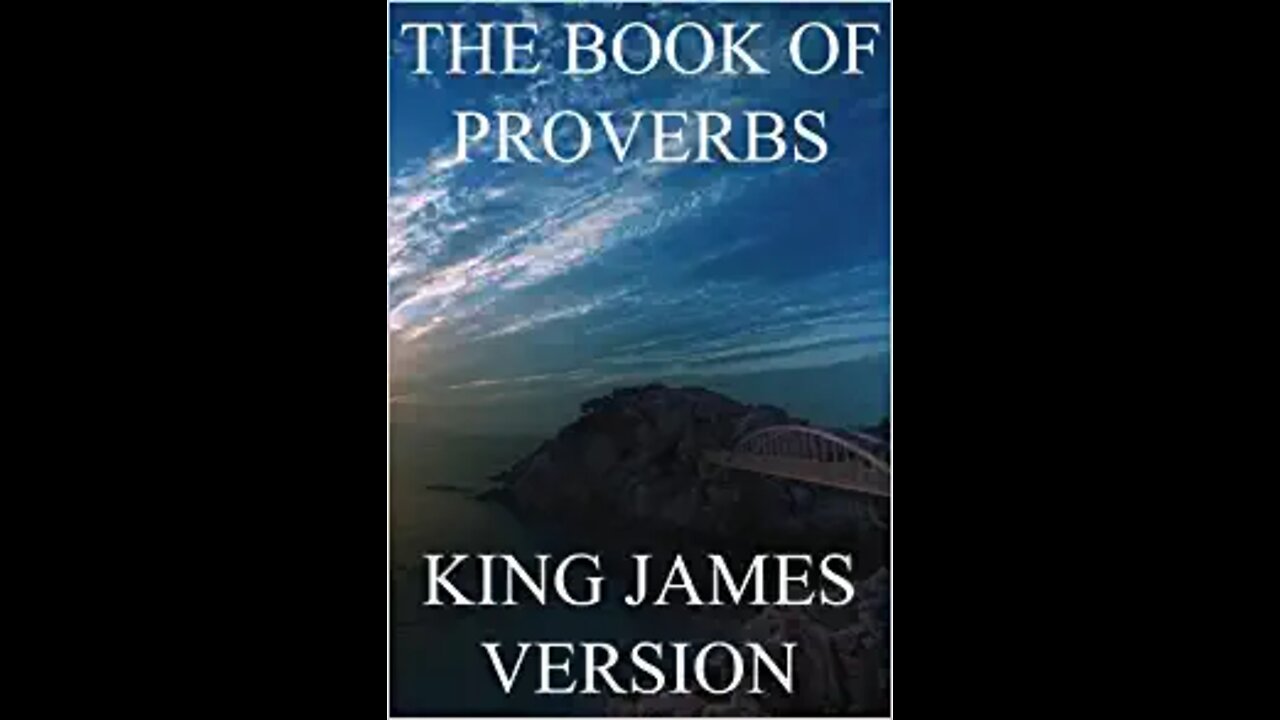Premium Only Content

Great Words of Wisdom. To bad our world hasn't got much left anymore
Who Wrote the Book of Proverbs?
King Solomon, who was the tenth son of King David and the second son of Bathsheba, was responsible for writing most of the Proverbs. They are often referred to as the “Proverbs of Solomon” as he accounts for possibly 29 of the 31 chapters. The other two chapters were authored by Agur and King Lemuel, respectively. Solomon reigned during what many refer to as Israel’s “Golden Age.” He was known for his wisdom, as we feel the power of as we read, as well as his accomplished record of buildings and other writings. His span of leadership lasted some 40 years, like Kings David and Saul before him. This lengthy range and history of prosperity during this time is a shining reflection on the type of leader he was.
Scriptures point to Solomon carrying out the Godly work of King David. 1 Kings 2-4 accounts for the charge David gave to Solomon before his death: “I am about to go the way of all the earth,” he said. “So be strong, act like a man, and observe what the LORD your God requires: Walk in obedience to him, and keep his decrees and commands, his laws and regulations, as written in the Law of Moses. Do this so that you may prosper in all you do and wherever you go and that the LORD may keep his promise to me: ‘If your descendants watch how they live, and if they walk faithfully before me with all their heart and soul, you will never fail to have a successor on the throne of Israel.’” A 40-year-reign and the Book of Proverbs later, we can see that Solomon took this charge seriously.
Context and Background of Proverbs
A proverb is defined as a statement of general truth or advice. Hebrew and Greek translations refer to proverbs as “parallel” or “similar to.” It is thought that the book of Proverbs was written and compiled sometime between the 10th and 6th centuries B.C. King Solomon died in 961 B.C. In 2 Chronicles 1:8, we read that Solomon answered God’s proposal of asking for whatever he would like with a request for wisdom and knowledge so that “he may lead these people.” Verse 11 describes that God was pleased with Solomon since he did not ask for wealth or honor, so he granted him wisdom, knowledge, and wealth. This wisdom is evident throughout the book.
Knowable Word author Peter Krol states that in order to really take in all that the book of Proverbs has to offer, you must first understand the first 9 chapters. These chapters are generally more repetitive and seem to oscillate around main themes, such as fearing the Lord is the beginning of wisdom. Other themes include using money in the right context and running from sexual impurity. These first chapters make up the context of and set the foundation for the remainder of the book.
As you read Proverbs, you may notice how the topics intertwine and loop but in ways just different enough that it could pass as a new topic. You might read what feels like a new theme, only to run a few verses and then change pace. Yet a few chapters later, the topic seems to resume. I would be curious to have a conversation with King Solomon to understand his methods. No matter, the curiosity and the content alone certainly keep me engaged. The Proverbs truly represent “the Book of Life” as every verse can jump out differently on any given day.
Main Theme and Purpose of Proverbs
Proverbs is one of the five “wisdom books” of the Bible, with the other four being Job, Psalms, Ecclesiastes, and Song of Solomon (Song of Songs). While it is a book about wisdom and how we can and should pursue that, the book is ultimately a guide to pleasing God and our fellow man. Proverbs 3:4 says, “…Then you will win favor and a good name in the sight of God and man.” BibleStudyTools.com comments,
“According to the prologue (1:1-7), Proverbs was written to give "prudence to the simple, knowledge and discretion to the young" (1:4), and to make the wise even wiser (1:5). The frequent references to "my son(s)" (1:8,10; 2:1; 3:1; 4:1; 5:1) emphasize instructing the young and guiding them in a way of life that yields rewarding ends. Acquiring wisdom and knowing how to avoid the pitfalls of folly lead to personal well-being, happy family relationships, fruitful labors and good standing in the community (see outline, p. 1279). Although Proverbs is a practical book dealing with the art of living, it bases its practical wisdom solidly on the fear of the Lord (1:7; see Ps 34:8-14 and note). Throughout the book reverence for God and reliance on him are set forth as the path to life, prosperity and security (cf. 3:5-10; 9:10-12; 14:26-27; 16:3,6-7; 18:10; 19:23; 20:22; 22:4; 28:25; 29:25).”
What Can We Learn from Proverbs Today?
Proverbs, like many books of the Bible, are living words that we can draw new life and wisdom from at any point in our life. Even if you have read Proverbs one hundred times, we can always draw something new from this living word. As we progress ourselves in wisdom and connection with God, old things become new again.
Wisdom incorporates knowledge and understanding and the Proverbs supply us with these things throughout several major themes including: revelation knowledge, the fear of the Lord, transcendence (author of) and immanence (actor within), the contrast of wise men and fools, wealth and poverty, and Jesus and the church. (The Passion Translation-Proverbs Introduction)
In our current time, there is an even deeper need for this content. Infidelity, materialism, laziness, and self-sufficiency run rampant. We have reality tv shows that promote having different partners in the same week, news about murders over theft, social media campaigns for getting rich quick schemes, and efforts to remove God from our lives entirely. Even for those of us that don’t absorb that content, it is wise for all of us to continually renew ourselves in God’s wisdom and love found in Proverbs.
-
 8:19
8:19
MattMorseTV
16 hours ago $10.48 earnedTrump is ACTUALLY DOING IT.
61.2K46 -
 5:40
5:40
Sugar Spun Run
23 hours ago $0.80 earnedNutella Brownies
9.66K -
 8:46
8:46
Faith Frontline
15 hours agoBill Maher STUNNED as Charlie Kirk Proves God Exists
10.3K9 -
 LIVE
LIVE
FyrBorne
9 hours ago🔴Warzone M&K Sniping: On the Hunt For The Next Fun Builds
91 watching -
 7:11
7:11
MudandMunitions
12 hours agoNY Legal, Still LETHAL! Colt M4 + Griffin Armament GPS3X Prism Sight! NIGHT SHOOT
8.58K3 -
 2:11
2:11
WildCreatures
2 days ago $0.47 earnedBrilliant Blue Hyacinth Macaw Eats Nuts With Impressive Dexterity
8.74K5 -
 29:45
29:45
DeVory Darkins
15 hours ago $5.04 earnedDemocrat Governor suffers EMBARRASSING LOSS to Trump as ICE takes Garcia into custody
16.7K59 -
 24:50
24:50
Bitcoin.com
16 hours agoEthereum hit an ATH this weekend | The Weekly Recap for Aug 25
12.7K -
 56:27
56:27
Actual Justice Warrior
15 hours agoAnti-White Celebrity DESTROYED On Jubilee
13.3K11 -
 19:44
19:44
itsSeanDaniel
1 day agoLiberal Karen INSTANTLY REGRETS Interrupting Putin's Right Hand Man
8.23K11